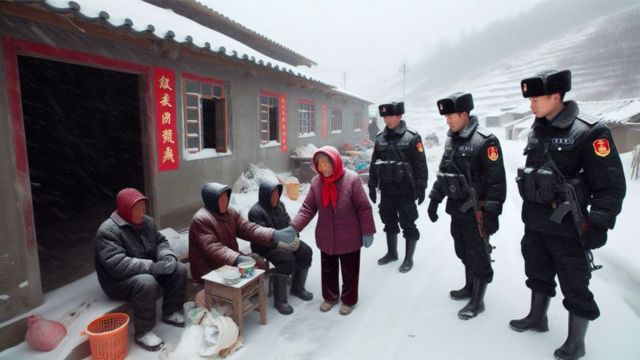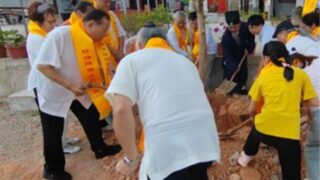After a previous three-year “general battle” failed to eradicate the banned religious organization, a new plan has been set in motion in 2024.
by Jiang Tao


After conducting a three-year “general battle” against The Church of Almighty God (CAG), the Chinese Communist Party (CCP) initiated another three-year “tough campaign,” aiming at “completely eradicating” the CAG. Local authorities were tasked with comprehensive investigations as a preparation for coordinated arrests.
Since the CCP launched a three-year “general battle” in September 2020, demanding the “complete destruction” of The Church of Almighty God, the number of CAG members arrested has exceeded 10,000 for three consecutive years, and the number of CAG members sentenced has surged. Rough statistics show that the number of CAG members sentenced in 2023 was twice that of 2020.
However, the CCP had to admit that after three years of crackdown, the CAG still exists “in an organized and sizable manner” in urban and rural grassroots, with an unclear number of untraceable devotees, including a large number of “unregistered members,” and has direct contact with their church communities overseas, according to a document “Bitter Winter” has seen. Therefore, citing the vast number of CAG members and their resilience as posing a great threat to its political security, the CCP has demanded the launch of a “three-year tough battle” against the CAG, aiming again at “completely eradicating” the church.
In 2024, the first year of the CCP’s three-year “tough battle,” police departments, political and legal committees, and government departments across China issued documents demanding a phased, dragnet-style comprehensive investigation of CAG members within their areas. The goal is to fully identify the members, structure, and movements of the CAG to prepare for further arrests.
The methods of investigation include big data screening, rewards for reports, house-to-house surveys, information collection, and systematic house visits. They require full utilization of the Skynet project and other surveillance facilities, in combination with the police’s big data, to list individuals with similar movement patterns, overlapping entry and exit locations, or phone contacts with already identified CAG members as suspects for investigation. All information will be entered into the Ministry of Public Security’s information management system for long-term tracking. Overseas CAG members are also targeted for investigation; anyone appearing in church-produced videos is registered in a data base, and upon their return to China, they will be subjected to arrests and sentencing.


Local governments are also training village officials, police officers, grid workers, CCP Women’s Federation staff, community leaders, and other unit heads to ensure they become able to identify CAG devotees. This includes recognizing the books CAG members read, the manners and patterns of their gatherings, as well as their everyday vocabulary, lifestyle habits, methods of communication, and forms of addressing each other. For example, individuals who do not post couplets during the Spring Festival and those who keep MP5 players in their homes are considered key investigation targets.
“Bitter Winter” has received copies of multiple reward notices for whistleblowers and survey forms distributed in schools and workplaces, asking the public to provide information on suspected CAG members nearby.
“Now there are surveillance cameras everywhere, plus the risk of being reported and inspected at any time; it’s way too hard!” a CAG member told “Bitter Winter,” mentioning that already for some time they could only meet in groups of two or three. However, with the new policies in place, their situation is set to become even more difficult.









